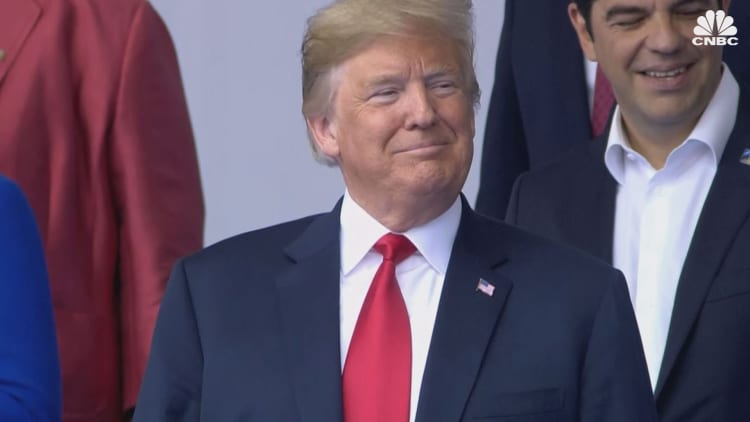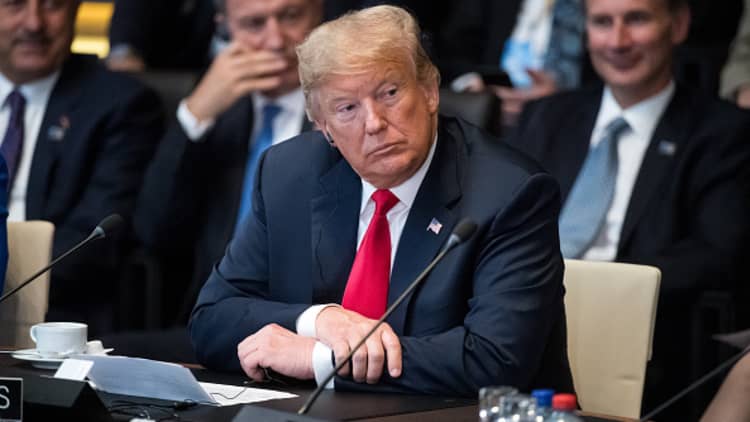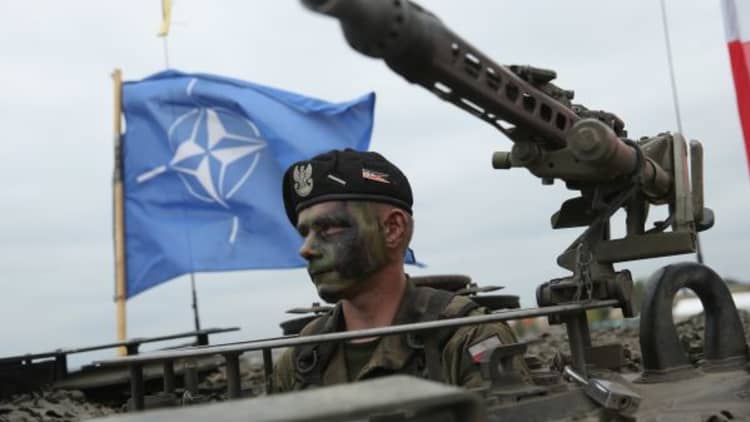
President Donald Trump said NATO allies had committed to raising their defense spending beyond 2 percent on Thursday morning, following a flurry of public diatribes against key members of the 29-nation bloc.
“NATO is much stronger now than it was two days ago,” Trump told reporters in Brussels, shortly after he had prompted an unscheduled crisis meeting among the group’s members.
The U.S. president claimed NATO allies had made unprecedented commitments to increase spending on their own defense, before adding he believed he could pull out of the group without Congressional approval. However, he then said this would now be "unnecessary" because allies had agreed to increase their defense spending.
Macron denies Trump's claim
According to AP, French President Emmanuel Macron denied Trump’s claim that the allies had agreed to boost defense spending beyond 2 percent of GDP. "There is a communique that was published yesterday. It’s very detailed.” he said, according to the news agency. “It confirms the goal of 2 percent by 2024. That’s all.”
The document, published Wednesday before the crisis meeting, states that allies have started to increase the amount they spend on defense in real terms and "some two-thirds of allies have national plans in place to spend 2 percent of their gross domestic product on defense by 2024."
Macron also added he did not believe it would be a good idea for NATO members to raise the target for defense spending to 4 percent of GDP from 2 percent, as Trump had suggested.
The mood music of this year’s NATO summit is contrasting sharply to previous international gatherings. They were once seen as relatively routine affairs, with member nations uniting to say the alliance had never been stronger and all pledging to continue to work together.
Nonetheless, tensions in the Belgian capital city have been particularly high this week, not least because many envoys were unsure about America's ongoing commitment to its Western allies.

'Extremely unhappy'
"I let them know that I was extremely unhappy ... It all came together in the end. It was a little tough for a while," Trump said.
Ahead of the summit, expectations of significant progress over defense spending were not particularly high. That’s because the broader U.S.-European relationship has already been soured by Trump’s trade tariffs, his withdrawal from the Iran nuclear deal and a rocky first meeting with NATO leaders in 2017.
Trump has long criticized Berlin and other NATO allies for “freeriding” on Washington’s defense capabilities. Currently only five of NATO’s 29 member states actually allocate the 2 percent of their gross domestic product (GDP) to military spending that they are formally committed to as part of the alliance. Those five are the U.S., the U.K., Greece, Estonia and Poland.
In May, Germany pledged to increase its defense spending to 1.5 percent of GDP by 2025, up from a low of 1.1 percent in 2015.
'Intense' meeting
“We had a very intense summit,” German Chancellor Angela Merkel told reporters shortly after the unplanned huddle, before adding: "There was a clear commitment to NATO by all."
Germany's long-time leader said everyone had made a clear commitment to NATO after a "very fundamental" discussion on Thursday morning. She gave little detail on the commitments that NATO members had given to the U.S. president.
On the first day of talks in the Belgian capital, the U.S. president publicly accused Germany — the second biggest state in the Western defense alliance — of being “totally controlled” by Russia. He suggested a string of energy oil and gas deals had given Moscow far too much influence over the continent’s largest economy.
Both Germany and Russia have since dismissed Trump’s accusation.



